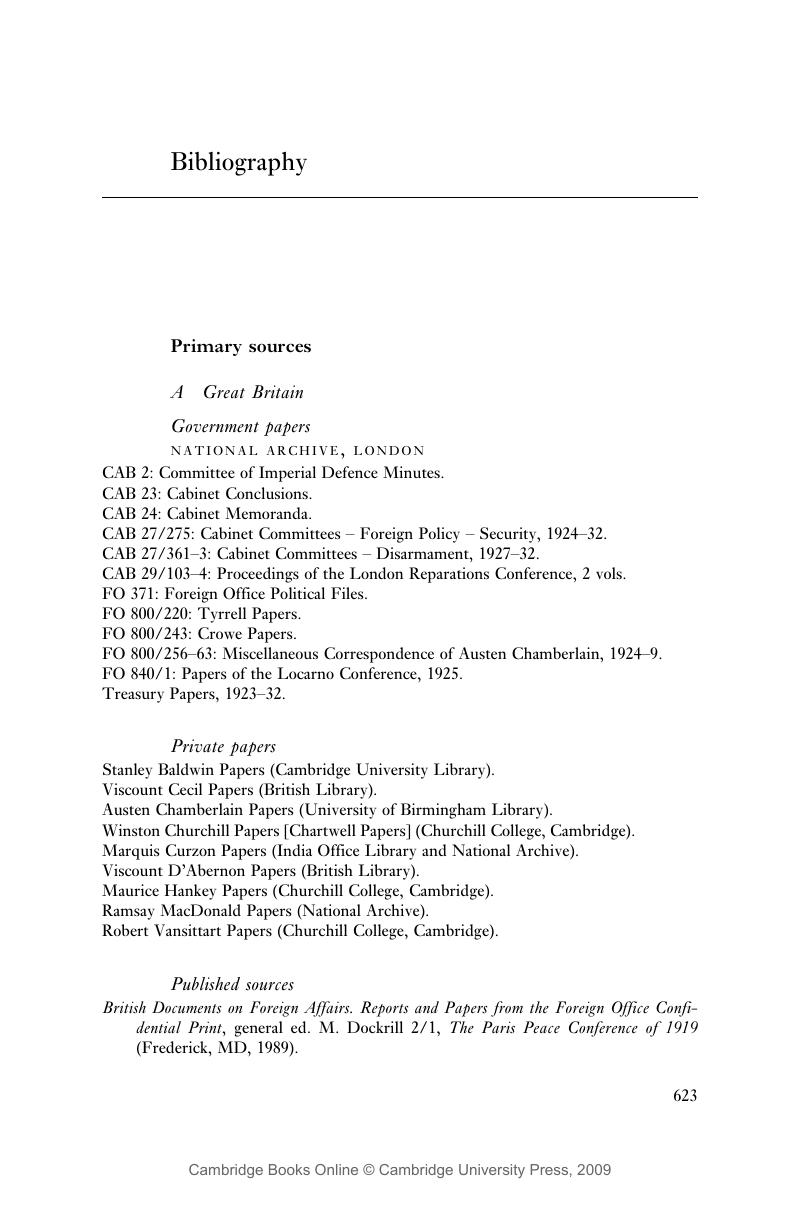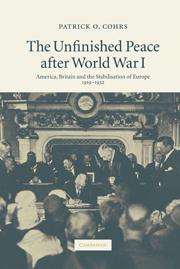Book contents
- Frontmatter
- Contents
- Acknowledgements
- List of abbreviations
- A note on the footnotes and bibliography
- Introduction
- Prologue
- 1 The wider challenges
- 2 Wilson, Lloyd George and the quest for a ‘peace to end all wars’
- 3 The ill-founded peace of 1919
- 4 The escalation of Europe's post-Versailles crisis, 1920–1923
- Part I The Anglo-American stabilisation of Europe, 1923–1924
- Part II Europe's nascent Pax Anglo-Americana, 1924–1925
- Part III The unfinished transatlantic peace order: the system of London and Locarno, 1926–1929
- Epilogue
- Conclusion
- Map: Post-World War I Europe after the peace settlement of Versailles
- Bibliography
- Index
- References
Bibliography
Published online by Cambridge University Press: 21 July 2009
- Frontmatter
- Contents
- Acknowledgements
- List of abbreviations
- A note on the footnotes and bibliography
- Introduction
- Prologue
- 1 The wider challenges
- 2 Wilson, Lloyd George and the quest for a ‘peace to end all wars’
- 3 The ill-founded peace of 1919
- 4 The escalation of Europe's post-Versailles crisis, 1920–1923
- Part I The Anglo-American stabilisation of Europe, 1923–1924
- Part II Europe's nascent Pax Anglo-Americana, 1924–1925
- Part III The unfinished transatlantic peace order: the system of London and Locarno, 1926–1929
- Epilogue
- Conclusion
- Map: Post-World War I Europe after the peace settlement of Versailles
- Bibliography
- Index
- References
Summary

- Type
- Chapter
- Information
- The Unfinished Peace after World War IAmerica, Britain and the Stabilisation of Europe, 1919–1932, pp. 623 - 650Publisher: Cambridge University PressPrint publication year: 2006



